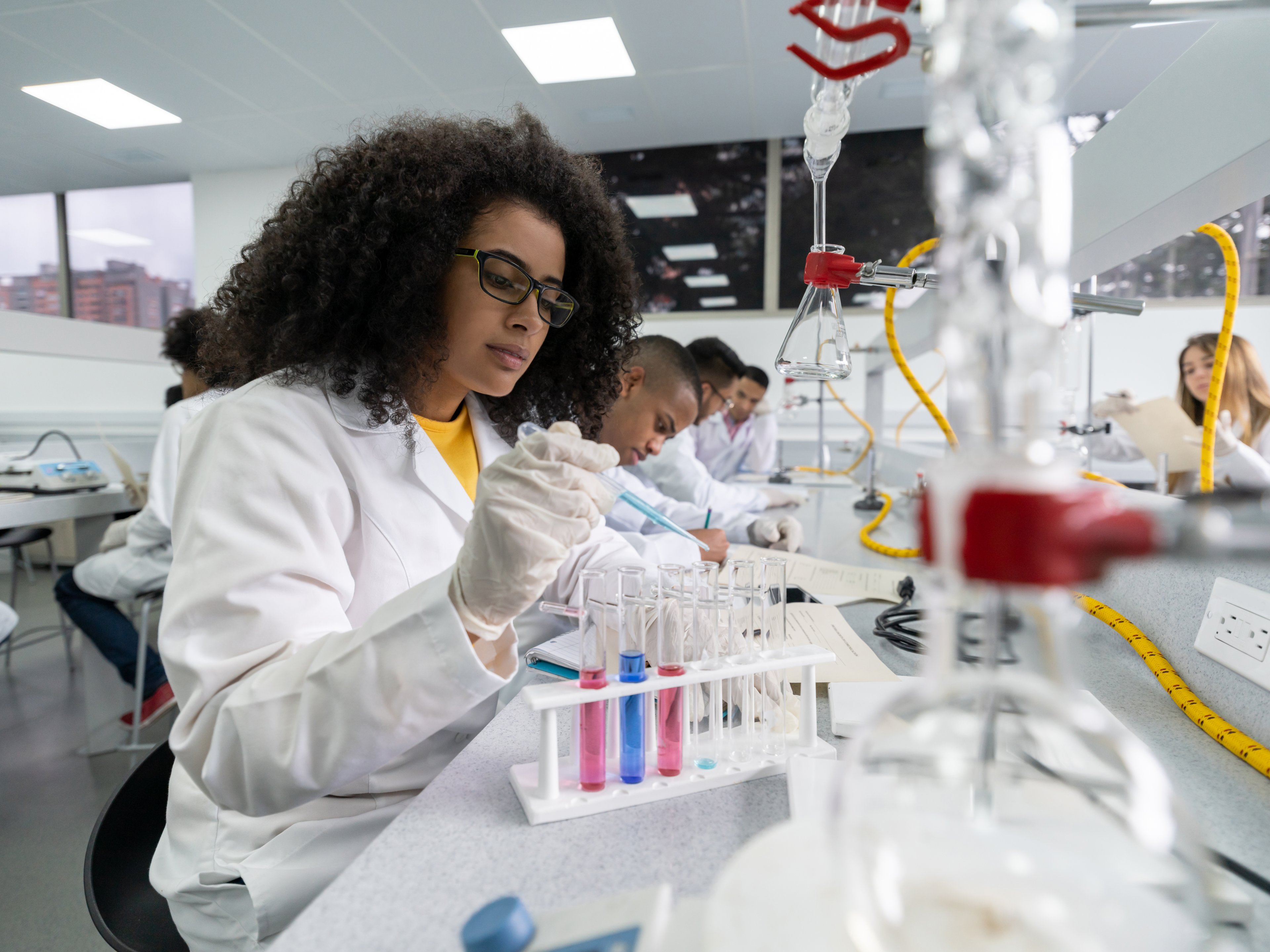A genie in a bottle has no power, but let that genie out and watch it make magic. We will soon find out if this applies for genes like it does genies. The U.S. Supreme Court announced a major ruling on Thursday that could have far-reaching implications for the world of biotech.

Source: Wikimedia Commons.
The Court ruled in a unanimous opinion that human genes cannot be patented, freeing previously patented genes up for any organization to use. However, the nine justices determined that complementary DNA, or cDNA, which is synthetically created from gene material, is patentable under the law. Here are some of the winners and losers from this landmark decision.
Winners
Some might be surprised to learn that one winner of the Supreme Court decision was the losing party in the lawsuit. The case was Association for Molecular Pathology v. Myriad Genetics (MYGN 1.42%). Myriad Genetics maintained the validity of patents that the company received for breast cancer genes. Even though the company must relinquish those patents, its stock still surged 9% initially before closing down almost 6%.
Myriad lost the battle in this case but perhaps won the bigger war. Most of the company's gene patents are for cDNA. The company's CEO, Peter D. Meldrum, said the Supreme Court's ruling "underscored the patent eligibility of our method claims, ensuring strong intellectual property protection for our BRACAnalysis test moving forward." In other words, Myriad can't patent the genes, but it can patent the processes surrounding isolation and use of the genes.
Other companies that have gene patents also counterintuitively won with the ruling. Biogen Idec (BIIB +1.13%) owns a patent to the KIM kidney gene. A gene patent held by Amgen (AMGN +0.04%) helped in the development of the company's Epogen anemia drug. Biogen's stock closed up nearly 1.5% on Thursday, while Amgen shares were up more than 2%.
Companies with synthetic DNA patents also benefited from the court's decision to allow patenting of cDNA. DuPont (DD +0.00%), for example, holds patents for synthetic DNA used in making proteins that help make crops more insect-resistant. The chemical company is the largest holder of gene patents in the U.S. Shares of DuPont traded down slightly at the market close on Thursday.
The biggest winner could be patients. Patient care will be improved with unfettered rights to genes, according to the American Medical Association. The American Civil Liberties Union's Sandra Park stated that, thanks to the ruling, "patients will have greater access to genetic testing and scientists can engage in research on these genes without fear of being sued."
Losers
Of course, Myriad Genetics still lost the case, so the company is a loser -- for now, at least. Its stock ended down on Thursday despite an initial spike, no doubt due to investors' worries about how the ruling will impact Myriad's genetic test revenue.
The biggest loser from the Court's decision appears to be small biotechs. In the past, these companies could secure financial backing based largely on obtaining a patent for a specific gene. Now, considerably higher investments will be required to protect intellectual property.
One wish
I think the Supreme Court made a wise decision with this ruling. Justice Clarence Thomas aptly summed it up with his statement that "a naturally occurring DNA segment is a product of nature and not patent eligible merely because it has been isolated."
The court also did well, in my view, by ensuring that cDNA can be patented. These synthetic genes are created products and not products of nature. This stipulation preserves the financial incentives for biotech companies to pursue research and development that could lead to more advances. If I could be granted one wish related to this case, it would be that tremendous medical advances will be the ultimate outcome of the justices' ruling.





